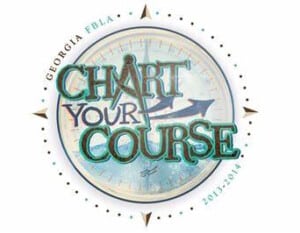Are You Charting the Course?

This week I read a passage that comes from John C. Maxwell’s book “The 21
Irrefutable Laws of Leadership” and wanted to share my insight about it in this
blog. As studio owners, teachers, assistant teachers, and front desk staff we are all leaders. We all influence others regularly. John Maxwell always says “Leadership is influence, nothing more, nothing less.”
and how we handle adversity all matter and contribute to our influence as a
leader.
As a leader, it is important that you are charting the course for those you lead.
John says there are four ways to do this.
Navigators draw on past experiences: As a leader you need to be looking ahead,
not backwards. It is easy to look backwards at things you did and second guess
how you responded or what you said, but as a leader it is more important to take
time to reflect on those experiences, learn how you can improve and move on.
When we draw on past experiences it helps us make better decisions.
An example of this from a teacher perspective is how you do your lesson plans for the week before Christmas break. As a new teacher you may go in with big plans
to have a focused and productive class. As an experienced teacher, you will go into that week knowing the kids will have trouble focusing and plan a fun class. This would be drawing on the past experiences and charting a course that will be
successful for both you and your students.
Navigators examine the conditions before making commitments: As a good
navigator, you count the cost before making decisions for you or others. You look
at many different angles including finances, momentum, timing, resources, talent,
etc. You look at the big picture and consider many factors before just jumping into a commitment.
An example of this as a studio owner would be when you are starting a new
program, you will look at timing to see where this will fit into the schedule. You will also consider if it makes sense financially- and consider the culture of your school. Does this new program align with the culture of your studio? I have seen studios start a new competitive program inside their school that does not align with their culture. Soon the culture shifts to something that no longer fits the vision the studio owner had and the environment turns toxic.
Navigators listen to what others have to say: It is so important to always listen to
what others have to say and consider their ideas. We don’t have all the answers,
but when we listen to others we not only show them respect, but we can also
come up with better solutions, have stronger communication, and have more
success.
have sat my senior dancers down and really listened to what they have to say. I ask them questions and chart the course that they help set. In our tap class for the past three years, my co-teacher Brittney and I have given the dancers a choice between a few songs for their routine, asked their opinion on costumes, and one year we even let them select the costume completely. We listened to what they wanted and in turn, they enjoyed the experience so much more. They took ownership of the dance and it has been more successful since we made this shift.
Navigators make sure their conclusions represent faith and fact: This is a big one. As the leaders, we have to have the faith that we can take our team, our class, our studio to the finish line. We need to possess a positive attitude even when it is difficult to do so. Having a positive “can do” attitude is important, but we also must always consider the facts. If we don’t we could be blindsided and find ourselves in
a mess.
would make it through and share that with our people. We all had moments
where we did not know if our business would survive, but we still needed to
remain positive and rely on the facts we had at the time. If we didn’t make smart decision based on facts, we would not be in business today.
These four truths about navigating as a leader will help you chart your course for
the new year. Something I am going to do to activate these ideas is select one
person each month to spend time charting their course using these tools. I am
going to do this for staff, faculty, as well as students. I always say “If you don’t know where you are going, you will never get there.” That statement could not be more true. If you don’t chart the course, you will not get to the destination you desire. If you don’t even consider it, you won’t even know if you made it. I will also keep this in the forefront of my mind as I navigate through the rest of the year in my decision-making, planning, and how I deal with issues as they arise.
I urge you to activate an idea from this blog and start charting the course for the
people you lead.
Pam Simpson is the founder, president, and driving force behind Forte Arts Center, which was established in Morris, Illinois in 1993. In addition to building her business from a small, one room studio to a large, multi-location organization that offers dance, tumbling and cheer programs as well as private music lessons, Pam is a leading force in the realm of small business ownership in the dance and tumbling industries as she travels all over the country speaking to and educating for large organizations such as Rhee Gold Company, Dance Teacher Summit, and More Than Just Great Dancing. When not working on her businesses, Pam enjoys spending time with her family and visiting her daughter, who is a performer at Walt Disney World.









